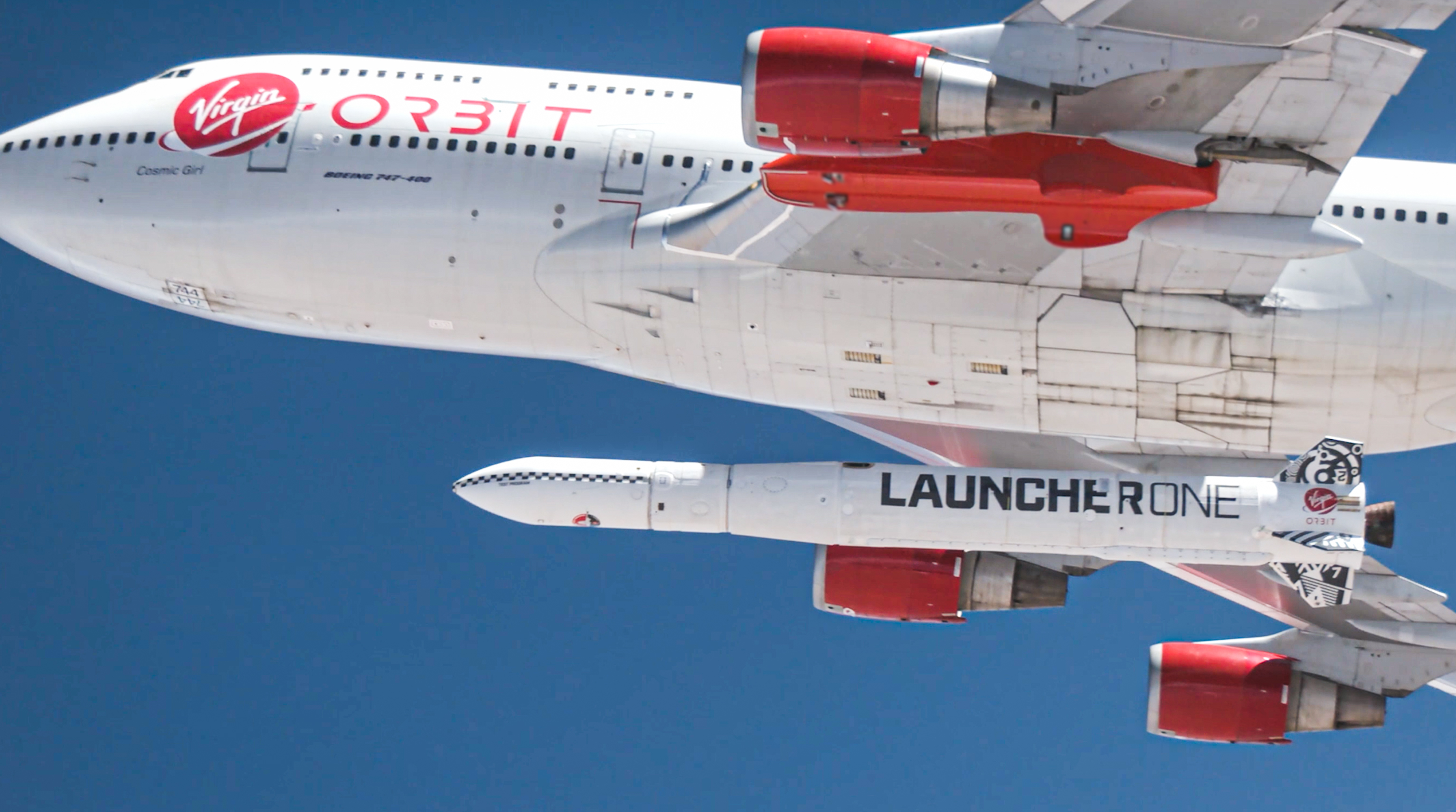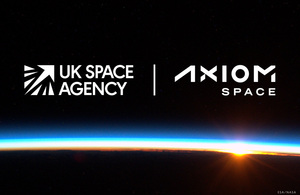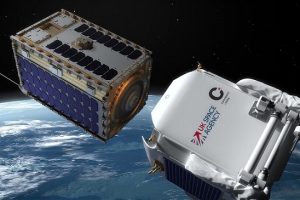While not all licensing for the launch has been completed, it also seems that technical issues have arisen, delaying the process.
The Virgin Orbit LauncherOne rocket is air-launched from Cosmic Girl – a modified 747-400 carrier aircraft – at a suitable altitude over a body of water. Such a ‘horizontal’ launch means aircraft can also use existing airport infrastructure, such as is the case with Newquay.
The company CEO, Dan Hart, confirmed in a statement that the launch would not be happening this year.
“With licences still outstanding for the launch itself and for the satellites within the payload, additional technical work needed to establish system health and readiness, and a very limited available launch window of only two days, we have determined that it is prudent to retarget launch for the coming weeks to allow ourselves and our stakeholders time to pave the way for full mission success.”
 Last month UK Government ministers visited the site (right), with both Cosmic Girl and the LauncherOne rocket having arrived in Cornwall in October. The rocket was in place under the wing of the aircraft and the satellites have already been integrated into the rocket ready for launch.
Last month UK Government ministers visited the site (right), with both Cosmic Girl and the LauncherOne rocket having arrived in Cornwall in October. The rocket was in place under the wing of the aircraft and the satellites have already been integrated into the rocket ready for launch.
The House of Commons Science and Technology Committee has also recently criticised delays by the civil regulators, saying it is not providing enough support for the licensing process, which has now been outstanding for the best part of a year for Spaceport Cornwall.
Who’s to blame?
A statement from the UK Civil Aviation Authority – in response to Virgin Orbit’s update – denied that delays in licensing on its part was the cause. Its Director for Space Regulation, Tim Johnson, said:
“The UK space regulation process is not a barrier to a UK space launch. Virgin Orbit has said in its statement this morning that there are some technical issues that will need to be resolved before launch. These in no way relate to the timing of when a licence will be issued by the Civil Aviation Authority.
“Effective licensing forms an integral part of UK space activity. Spaceport Cornwall’s licence already permits Virgin Orbit to undertake its testing programme prior to launch. Our dedicated team has been working closely with all partners to assess applications and issue the remaining licences within the timelines we set at the outset.
“We continue to work with Virgin Orbit, and other stakeholders, to play our part in delivering a safe UK launch.”
Spaceport Cornwall
The BBC quotes the head of Spaceport Cornwall, Melissa Thorpe, confirming that not all pre-launch tests had been successful.
“It was a bit of a down day yesterday to say the least, but it is the right decision and it is not a question of ‘if’ but ‘when’,” she told BBC Radio Cornwall.
“We would rather wait to get the licence across the line, get the tests exactly where Virgin want them to be, have everybody have a Christmas Day with their families – and as soon as we are able after Christmas we will get back to that launch window.”
Satellite launch
The launch, for Low-Earth orbit (LEO), will be via Cosmic Girl, a modified Boeing 747 (pictured). Among the payload already waiting in place is the Dstl’s (Defence Science and Technology Laboratory) miniaturised space weather instrumentation suite.
The Coordinated Ionospheric Reconstruction Cubesat Experiment (CIRCE) satellite mission comprises two 6U cube-satellites that will be launched into a near-polar low Earth orbit in a string-of-pearls configuration (targeting 555 kilometres altitude).
There’s also a research satellite from RHEA Group, built in Oxfordshire by space company Open Cosmos, it will be sharing a ride with five additional satellite missions, including the first ever satellite to be built in Wales.
Dubbed ‘DOVER’, this pathfinder satellite transmits a signal, designed by engineers at RHEA, to provide data from space that can be used on the ground to obtain a position or an accurate time.
Also in the payload will be the first Omani satellite, the CubeSat Aman, which has already successfully prepared for its launch (placed in the launch dispenser, and undergoing a series of checks). The Earth-observation satellite will be Oman’s first space mission.
See also: Virgin Orbit completes rehearsal for first UK space launch at Spaceport Cornwall
 Electronics Weekly Electronics Design & Components Tech News
Electronics Weekly Electronics Design & Components Tech News




